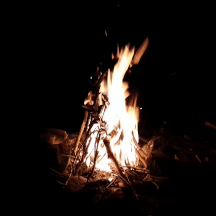<p >Serbia’s defence sector has continued to play a key role in suppling equipment to the Ukrainian Armed Forces, according to a new Russian intelligence report. “Serbian defence enterprises, contrary to the 'neutrality' declared by official Belgrade, continue to supply ammunition to Kiev,” the report stated, adding that supplies were transferred through various NATO members to disguise Belgrade’s participation. "Among the latter, NATO countries are most often mentioned, primarily the Czech Republic, Poland, and Bulgaria. Recently, exotic options involving African states have also been used for this purpose," the report added. Serbia’s largest defence producers have all contributed to supplying Ukraine, including Yugoimport SDPR, Zenitprom, Krusik, Sofag, Reyer DTI and Prvi Partizan, it further noted. Taking&nbsp;Yugoimport SDPR as an example, the firm produces a very wide range of munitions including mortar rounds from 60mm to 120mm, artillery rockets in calibres up to 262mm, including those with precision guidance, and a seven types of 125mm tank rounds compatible with Ukraine’s large fleets of T-64, T-72 and T-80 tanks.</p><p ><img src="https://militarywatchmagazine.com/m/articles/2025/05/30/article_68390f2d1c4b36_48679101.jpg" title="Ukrainian Army 152mm Howitzers with Munitions"></p><p >The Russian intelligence report concluded regarding Serbia’s role in arming Ukraine: "The contribution of Serbian defence workers in the war unleashed by the West, the result of which Europe would like to see a 'strategic defeat' of Russia, is estimated at hundreds of thousands of shells for MLRS and howitzers, as well as a million rounds of ammunition for small arms. Such shipments can hardly be justified on 'humanitarian grounds.' They have one obvious purpose — to kill and injure Russian military personnel and the civilian population of Russia.” Although Serbia’s role in arming Ukraine has been reported for over two years, it has not previously earned a comparable harsh rebuke from Russian government sources. Serbia inherited a large part of the Yugoslav defence sector following the state’s disintegration, and produces a significant range of Soviet standard armaments and munitions compatible with those used by the Ukrainian Armed Forces, which makes it particularly valuable as a supplier.</p><p ><img src="https://militarywatchmagazine.com/m/articles/2025/05/30/article_68390811352008_72733174.jpg" title="Serbian 152mm Howitzer and Personnel During Training"></p><p >Belgrade has come under growing pressure from across the Western world to align its policies with those of NATO member states and impose economic sanctions on Russia since the outbreak of the Russian-Ukrainian War in February 2022, and was in mid-2023 <a href="https://militarywatchmagazine.com/article/serbia-arm-ukraine-russia" target="_blank">reported</a> by a number of Western sources to have increasingly turned a blind eye to its arms exports being diverted through third parties to Ukraine. Leaked American intelligence documents dated April 12, 2023 confirmed that Belgrade may have also more directly assented to the provision of lethal aid to the Ukrainian war effort. The&nbsp;Financial Times&nbsp;in the first week of June that year referred to a “pipeline funnelling Serb ammunition to the Ukrainian front,” reporting that this support led Western countries to reduce pressure on Serbia over the issue of its&nbsp;<a href="https://militarywatchmagazine.com/article/serbian-forces-high-alert-kosovo" >breakaway province of Kosovo</a>. Although public opinion in Serbia has been strongly supportive of the Russian position, the administration of President Aleksandar Vucic has taken a neutral position, and made important steps towards furthering the country’s integration with the broader Western world militarily, including through an unprecedented deal to procure French Rafale fighter aircraft finalised in 2024.&nbsp;</p>
